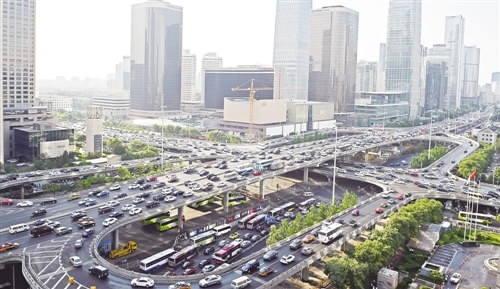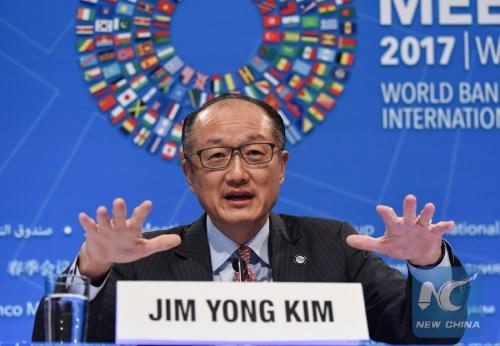
Business
16:07, 31-Jul-2017
Chinese cities to receive World Bank grant to ease traffic jams

The World Bank has decided to allocate a fund for seven Chinese major cities to help them ease traffic congestion by reducing the number of private cars on the road and improving public transport.
A total of 32.73 million US dollars will be granted to cities including Beijing, Tianjin, Ningbo, Nanchang and Shenzhen via the institution's trust-funded program on environmental protection, named the Global Environment Facility (GEF).
The international lender said the fund would be used to pilot transit-oriented development (TOD), an urban planning concept that integrates land use and transport.

Beijing's traffic jam in CBD area. /Ce.cn Photo
Beijing's traffic jam in CBD area. /Ce.cn Photo
"It focuses on compact, mixed-use, pedestrian and bicycle-friendly development around transit stations that can help reverse the trend of car-dependent city sprawl, improve air quality and reduce road congestion," said Fang Wanli, the bank's urban economist and project co-leader.
The World Bank, China Transport News, and the GEF organized a workshop in Urumqi, northwest China's Xinjiang Uygur Autonomous Region in April, serving as a platform to share good practices, challenges, and opportunities in the traffic sector.
According to the World Bank, improving urban mobility is an emerging priority for transport planners and public policymakers.
"China's ITS and traffic management capabilities have improved substantially," said Georges Bianco Darido, Lead Transport Specialist at the World Bank in June.

World Bank President Jim Yong Kim speaks at a press conference during IMF-World Bank 2017 Spring Meeting in Washington DC, April 20, 2017. /Xinhua Photo
World Bank President Jim Yong Kim speaks at a press conference during IMF-World Bank 2017 Spring Meeting in Washington DC, April 20, 2017. /Xinhua Photo
China's new-type urbanization drive which features people-centered and integrated development will benefit from the fund, according to the World Bank.
Chinese cities have experienced unprecedented growth, with urban residents accounting for 57.35 percent of the country's total population in 2016. The proportion is expected to increase to 70 percent by 2030. But side effects have emerged and improved planning has become essential for building livable, sustainable and inclusive cities.
The World Bank's pilot project comprises 27 participating cities in 11 countries.
Established in 1991, the GEF trust fund aims to help tackle pressing environmental problems and has launched 790 investment projects and programs in 120 countries.
(Source: Xinhua)

SITEMAP
Copyright © 2018 CGTN. Beijing ICP prepared NO.16065310-3
Copyright © 2018 CGTN. Beijing ICP prepared NO.16065310-3